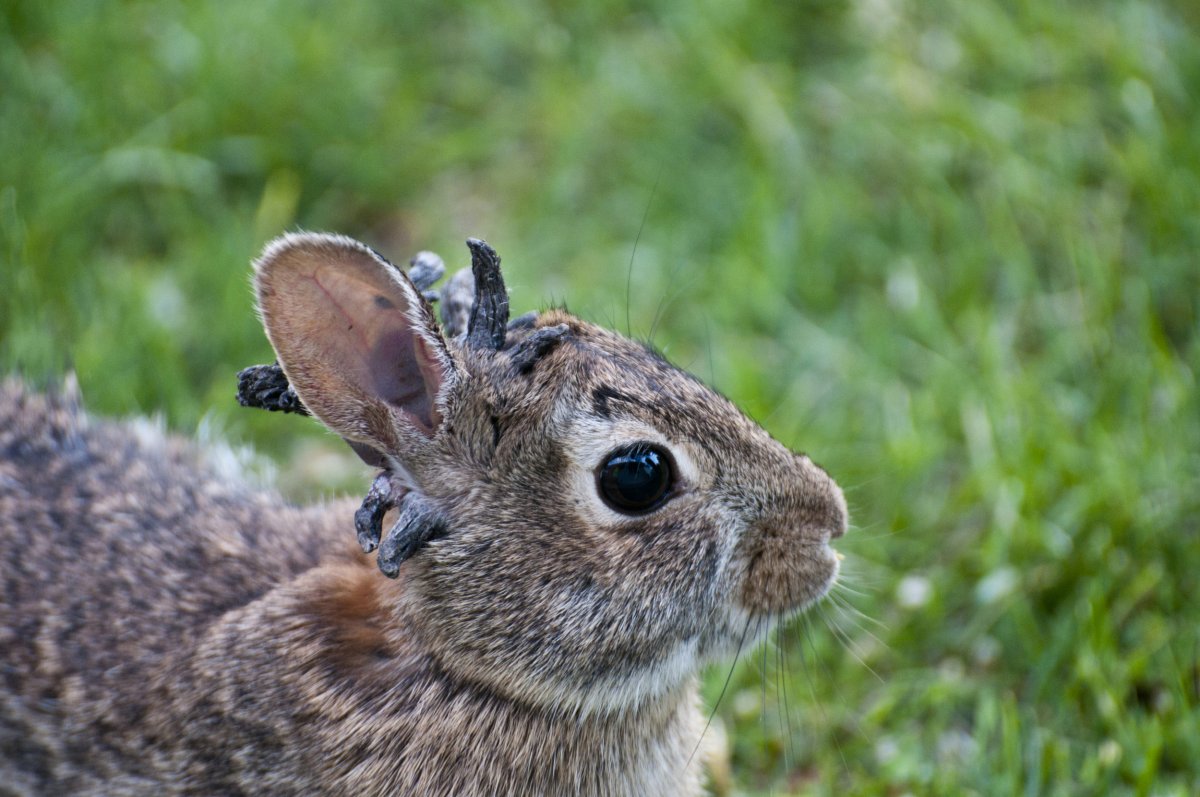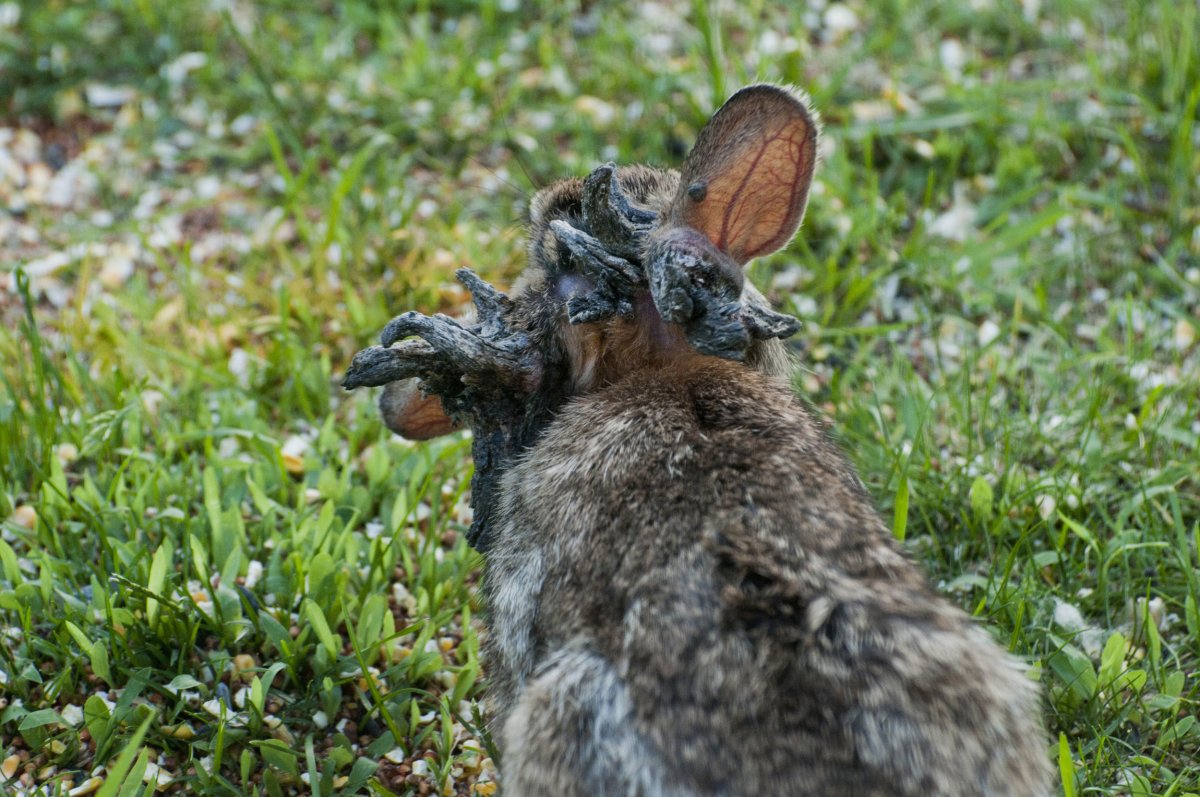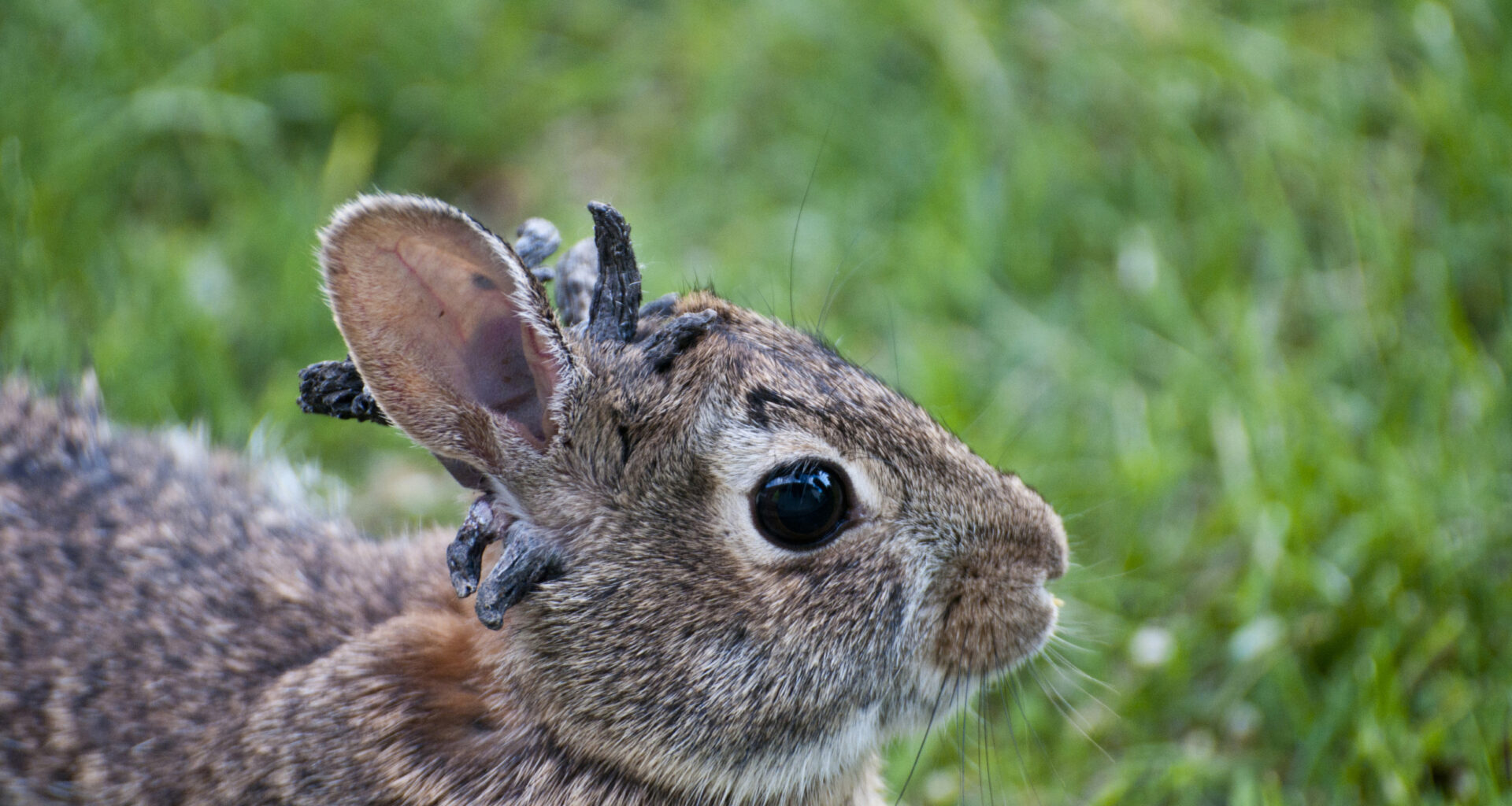Residents in Fort Collins, Colorado, have been reporting sightings of wild rabbits with tentacle-like, black spiny growths around their mouths and faces, according to the local news station WFSB.
A Colorado Parks and Wildlife spokesperson told Newsweek that the growths are “most likely the rabbit (or shope) papilloma virus which is not uncommon in Colorado.”
“We have started to take more reports of rabbits in the northern Colorado area affected with the virus since photos were first published last Friday,” they said.
“We’re up to maybe a dozen or so reports, but it’s most likely people reporting the same rabbits and not a dozen rabbits infected.”
While the virus is not known to be contagious to other animals or humans, Colorado Parks and Wildlife has advised people to leave affected wild rabbits alone and ensure their pets do not to go near them.
Why It Matters
The unusual appearance of the rabbits has drawn significant concern among locals and even social media users online, prompting a number of references to the TV series The Last of Us, which follows two characters as the world is taken over by a fungal infection.

File photo: a rabbit with the papilloma virus (CRPV), or Shope papilloma virus.
File photo: a rabbit with the papilloma virus (CRPV), or Shope papilloma virus.
Education Images/Universal Images Group via Getty Images
What To Know
Locals have described the growths as scabby patches with black, toothpick-like or quill-like protrusions around the mouth and face of cottontail rabbits spotted in yards and parks in Fort Collins, according to the WFSB report. The virus can also cause tumors resembling mini-antlers on their head.
Per the outlet, one anonymous resident said: “It’s kind of like a, just like a scabby-ish-looking growth over their face.”
Another local, Susan Mansfield, told the outlet: “Looks like it was black quills or black toothpicks sticking out all around his mouth, or her mouth.”
She added that she had seen a bunny continue to appear in her yard with the growths, and she told WFSB she thought “he would die off during the winter, but he didn’t, he came back a second year, and it grew.”
Why Rabbits Are Growing ‘Tentacles’
Some say the Shope papilloma virus played a role in the cultivation of the North American myth of the jackalope and similar horned rabbit creatures, and that it also helped scientists discover that a virus could cause cancer, paving way for the HPV vaccine to be developed.
Rabbits, typically wild cottontail populations, can get the virus from the bites of certain insects, such as mosquitoes and ticks, particularly during the summer months when it is warmer.
The virus is related to the human papillomavirus, but SPV is not currently known to affect humans, although experts still advise that humans should stay away from any wild rabbits with the virus.
For pet owners, clinical guidance for rabbits with the virus is to have the tumors removed, in case they become malignant, even though they can resolve themselves on their own.
“We would be concerned only if the growths are on the eyes or impede the rabbit’s ability to eat,” a Colorado Parks and Wildlife spokesperson told Newsweek.

File photo: a rabbit with the papilloma virus (CRPV), or Shope papilloma virus. The virus infects rabbits, causing keratinous carcinomas, typically on or near the animal’s head.
File photo: a rabbit with the papilloma virus (CRPV), or Shope papilloma virus. The virus infects rabbits, causing keratinous carcinomas, typically on or near the animal’s head.
Education Images/Universal Images Group via Getty Images
What People Are Saying
Social media user Janice Nodine, wrote in a post on X: “Rabbits in Fort Collins are turning up with black, tentacle-like growths sprouting from their heads. Experts say it’s caused by Shope Papillomavirus—a condition the animals carry for life. Officials insist it’s “not dangerous to humans” … but warn: DO NOT TOUCH THEM. Strange, right? Makes you wonder what’s really going on …”
Dom Lucre, a social media user with more than 1.5 million followers on X, wrote on the platform: “Colorado officials just sent a warning of: “DO NOT TOUCH” to their residents after rabbits were spotted invading parts of the U.S. with weird tentacles sprouting from their heads due to virus.”
What Happens Next
Colorado Parks and Wildlife have advised residents to keep their distance from affected wild rabbits.

